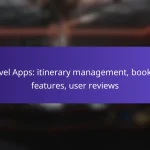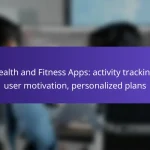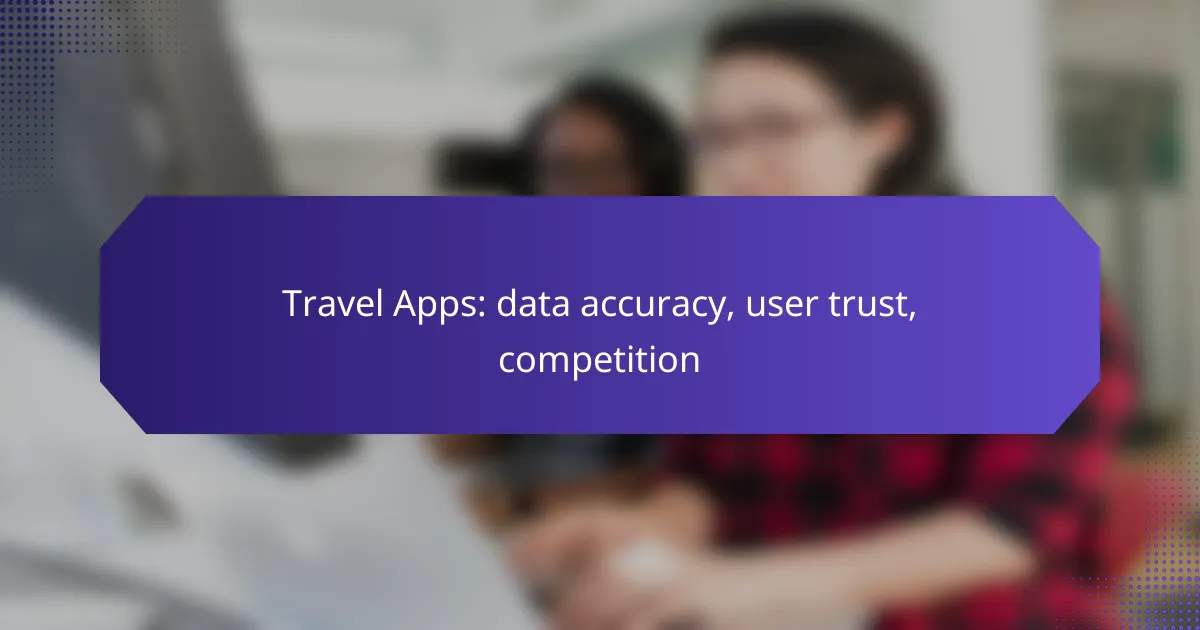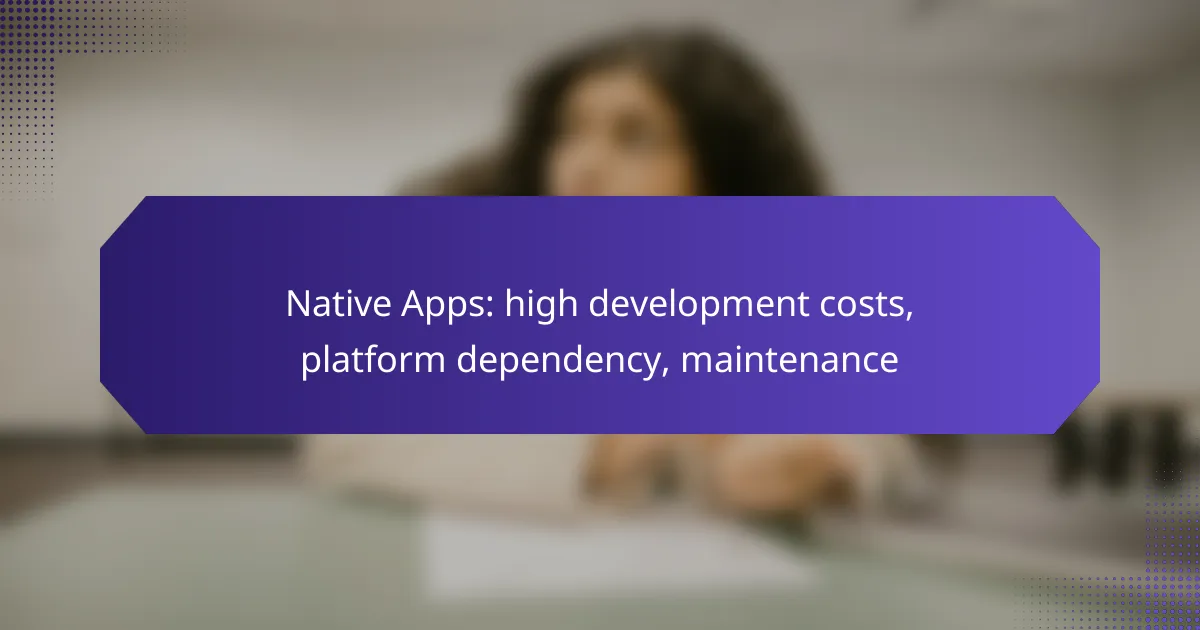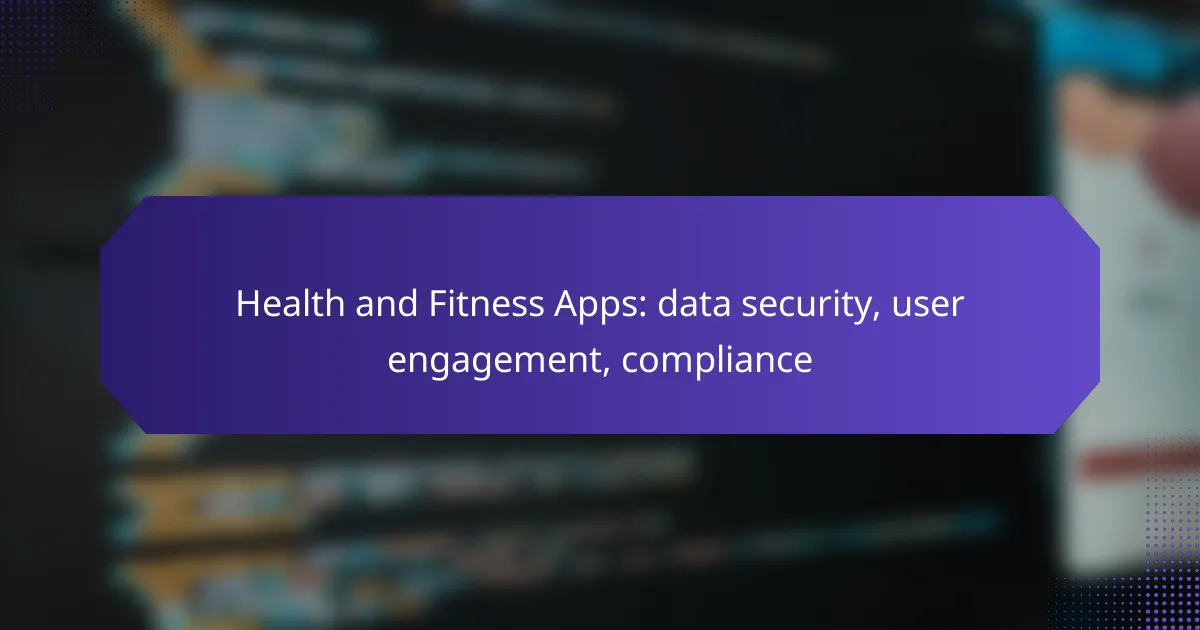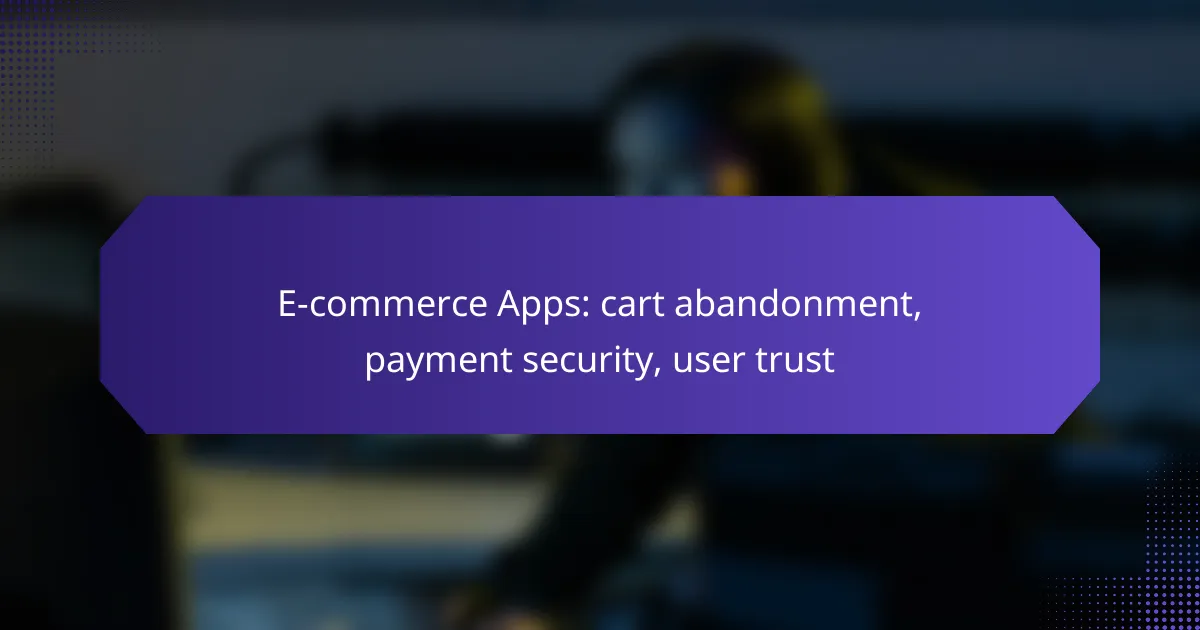In the competitive landscape of travel apps, data accuracy is paramount for building user trust and ensuring a seamless travel experience. Apps like Google Maps, TripIt, Skyscanner, Kayak, and Airbnb excel in providing reliable information on navigation, itineraries, and pricing, making them indispensable for travelers. By prioritizing transparency and user engagement, these platforms not only enhance their credibility but also distinguish themselves through unique features and exceptional customer service.
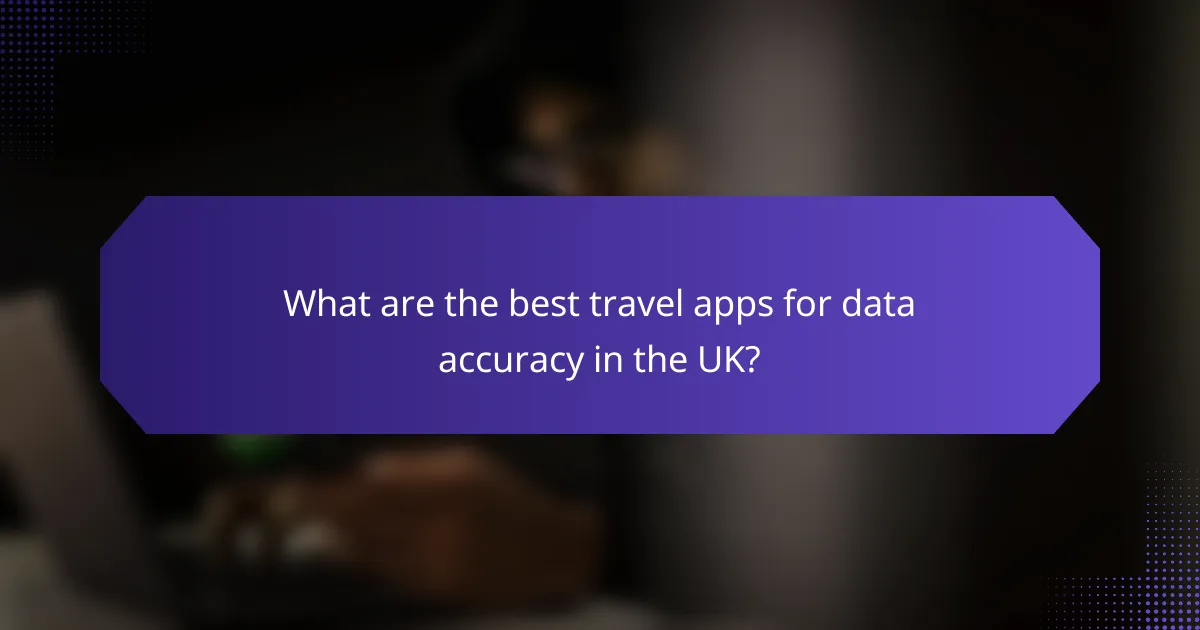
What are the best travel apps for data accuracy in the UK?
The best travel apps for data accuracy in the UK include those that provide reliable information on navigation, itineraries, flight prices, and accommodation. Apps like Google Maps, TripIt, Skyscanner, Kayak, and Airbnb stand out for their precision and user trust, making them essential tools for travelers.
Google Maps
Google Maps is renowned for its accurate navigation and real-time traffic updates. It offers detailed maps, public transport information, and user-generated reviews, which enhance its reliability. Users can also check business hours and contact details, ensuring they have the most current information.
To maximize accuracy, ensure location services are enabled on your device. Regularly update the app to benefit from the latest features and data corrections.
TripIt
TripIt organizes travel itineraries by consolidating confirmation emails into a single view. This app is particularly useful for tracking flight times, hotel bookings, and car rentals, providing real-time updates on any changes. Users can easily share their itineraries with others, enhancing coordination.
For best results, forward all travel confirmation emails to TripIt and check for updates before your trip. This proactive approach helps avoid last-minute surprises.
Skyscanner
Skyscanner is a powerful tool for finding accurate flight prices and availability. It aggregates data from various airlines and travel agencies, allowing users to compare options easily. The app also provides alerts for price drops, helping users secure the best deals.
To make the most of Skyscanner, set up price alerts for specific routes and be flexible with travel dates. This can lead to significant savings on flights.
Kayak
Kayak excels in comparing travel options, including flights, hotels, and car rentals. Its user-friendly interface displays a wide range of prices and options, making it easy to find the best deals. Kayak also offers a price forecast feature, indicating whether prices are likely to rise or fall.
Utilize Kayak’s filters to narrow down choices based on preferences like budget or amenities. Regularly check the app for updates, as prices can fluctuate frequently.
Airbnb
Airbnb provides a platform for booking unique accommodations, often at competitive prices. The app includes user reviews and ratings, which contribute to its data accuracy regarding property quality and host reliability. Users can filter searches based on location, price, and amenities.
To ensure a positive experience, read multiple reviews before booking and check the cancellation policy. This helps avoid potential issues during your stay.

How do travel apps build user trust?
Travel apps build user trust primarily through transparency, reliability, and user engagement. By providing accurate data, clear privacy policies, and honest pricing, these apps create a trustworthy environment for users seeking travel information and services.
User reviews and ratings
User reviews and ratings play a crucial role in establishing trust for travel apps. Potential users often rely on the experiences of others to gauge the reliability and quality of services offered. High ratings and positive reviews can significantly influence a user’s decision to download or use an app.
To maximize trust, apps should encourage users to leave feedback and respond to reviews, both positive and negative. This engagement shows that the app values user input and is committed to improving its services.
Data privacy policies
Clear and comprehensive data privacy policies are essential for building user trust in travel apps. Users need assurance that their personal information will be handled responsibly and securely. Apps should outline how data is collected, used, and shared, as well as the measures taken to protect user privacy.
Travel apps should comply with relevant regulations, such as the General Data Protection Regulation (GDPR) in Europe, to enhance credibility. Providing users with easy access to privacy settings and options to control their data can further strengthen trust.
Transparency in pricing
Transparency in pricing is vital for travel apps to gain user trust. Users appreciate clear information about costs, including any additional fees or charges that may apply. Apps should present pricing in a straightforward manner, avoiding hidden fees that can lead to frustration.
Offering price comparisons and breakdowns can help users make informed decisions. Additionally, providing guarantees or price match options can enhance trust by assuring users they are getting the best deal available.
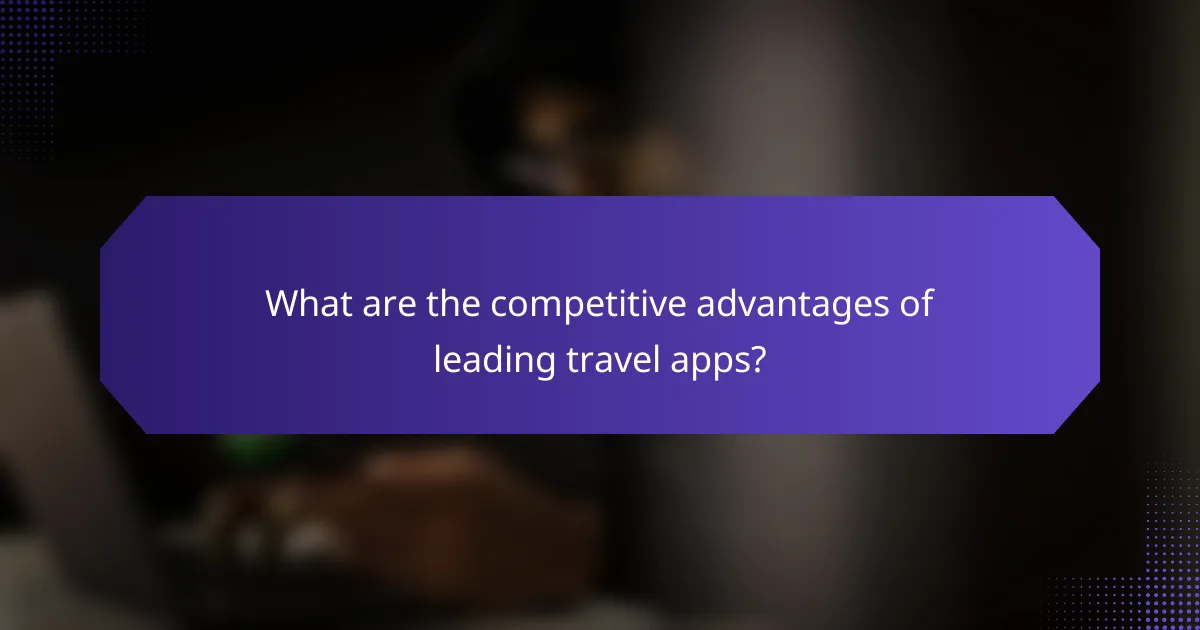
What are the competitive advantages of leading travel apps?
Leading travel apps gain competitive advantages through unique features, exceptional customer service, and robust integration capabilities. These elements enhance user experience, build trust, and differentiate them in a crowded market.
Unique features of Booking.com
Booking.com stands out with its extensive inventory of accommodations, including hotels, apartments, and unique stays like villas and castles. Users benefit from flexible booking options, such as free cancellation on many listings, which increases confidence in making reservations.
The app also offers a user-friendly interface with advanced filtering options, allowing travelers to easily find accommodations that meet their specific needs, such as pet-friendly or family-oriented options. Additionally, the inclusion of verified guest reviews helps users make informed decisions.
Customer service of Expedia
Expedia is known for its comprehensive customer service, providing support through multiple channels including phone, chat, and email. This accessibility is crucial for travelers who may need assistance with bookings or changes, especially during emergencies or unexpected situations.
The app also features a user-friendly help center with FAQs and troubleshooting guides, which can resolve common issues quickly. Users appreciate the ability to manage their itineraries and receive real-time updates on flight changes or delays, enhancing overall travel experience.
Integration capabilities of Hopper
Hopper excels in integrating predictive analytics to help users find the best times to book flights and accommodations. By analyzing historical data, the app provides personalized recommendations, allowing travelers to save money by booking at optimal times.
Additionally, Hopper’s integration with various travel services, such as car rentals and activities, creates a seamless booking experience. Users can plan entire trips within one app, which simplifies the travel planning process and saves time.
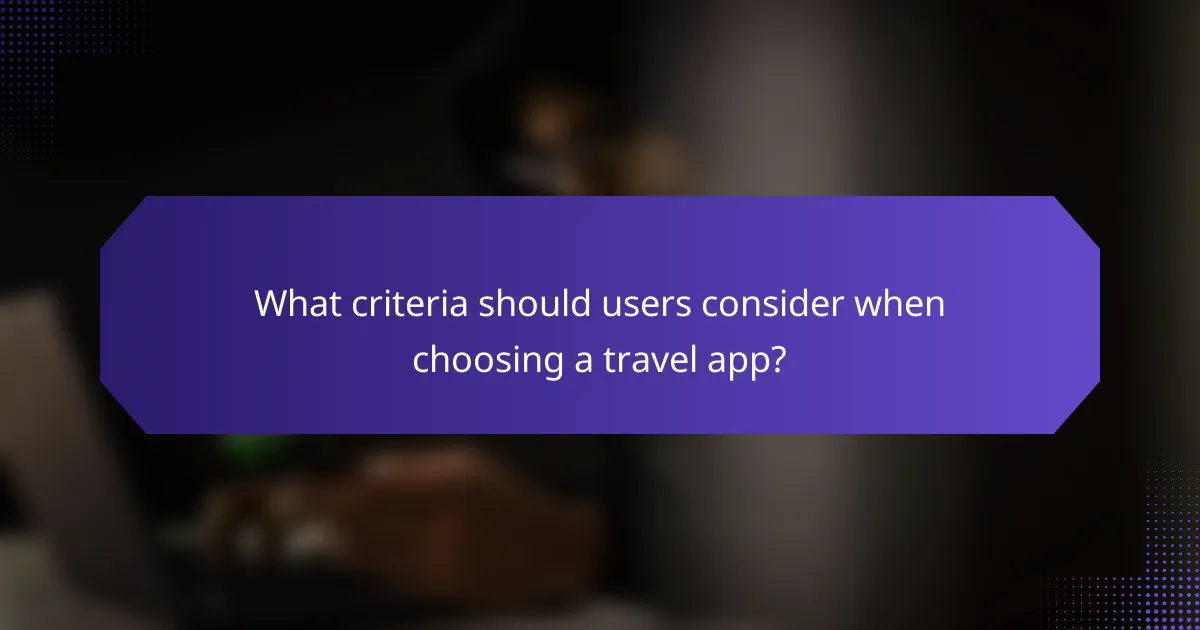
What criteria should users consider when choosing a travel app?
When selecting a travel app, users should prioritize data accuracy, user interface, and customer support. These factors significantly influence the overall experience and reliability of the app during travel planning and execution.
Data accuracy
Data accuracy is crucial for ensuring that users receive reliable information regarding flight schedules, hotel availability, and local attractions. Users should look for apps that source their data from reputable providers and offer real-time updates to avoid misinformation.
To assess data accuracy, check user reviews and ratings, focusing on comments about the app’s reliability. Additionally, consider apps that provide verification features, such as confirmation emails or links to official websites.
User interface
A user-friendly interface enhances the travel app experience by making navigation intuitive and efficient. Look for apps that feature clear layouts, easy-to-read fonts, and logical categorization of information.
Consider trying out the app’s demo or free version to evaluate its usability before committing. An effective user interface should minimize the number of steps needed to access essential features, such as booking or itinerary management.
Customer support
Reliable customer support is essential for resolving issues that may arise during travel. Users should choose apps that offer multiple support channels, such as live chat, email, and phone assistance, to ensure help is readily available.
Check the availability of customer support in your preferred language and the hours of operation. Apps with 24/7 support can be particularly beneficial for travelers in different time zones or those facing unexpected challenges.
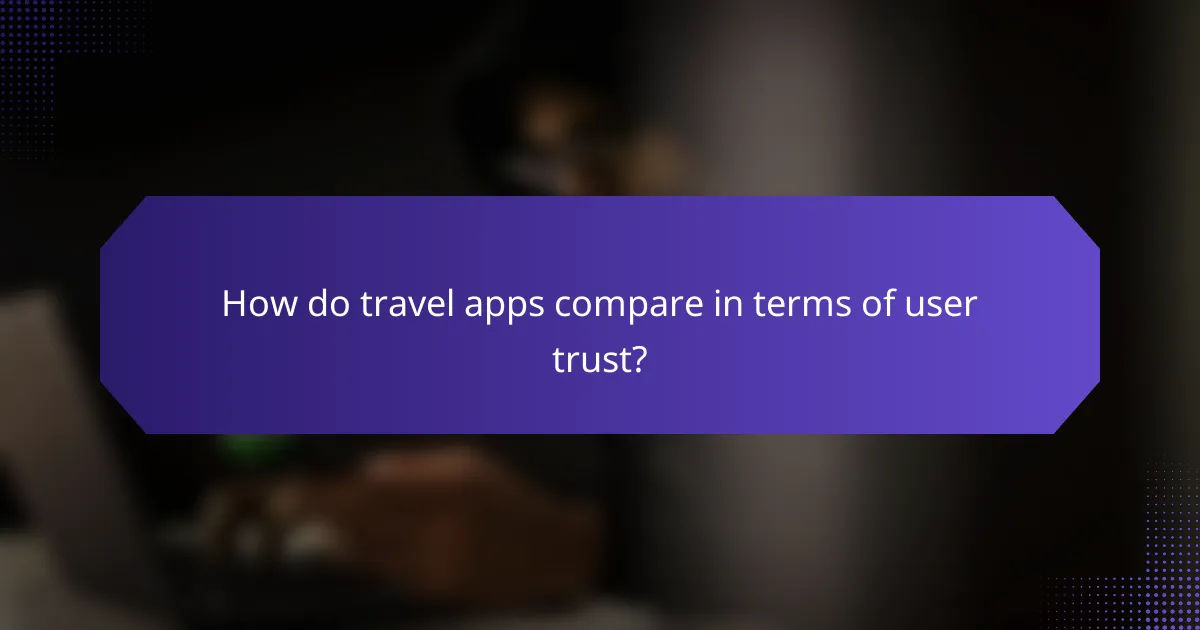
How do travel apps compare in terms of user trust?
User trust in travel apps varies significantly based on factors like data accuracy, customer service, and user reviews. Many travelers rely on ratings and feedback to determine which apps they can trust for planning their trips.
Trustpilot ratings
Trustpilot ratings provide a clear indication of user trust in travel apps. These ratings are based on user reviews and can range from one to five stars, with higher ratings generally indicating better user experiences. Apps with ratings above four stars often demonstrate reliability and customer satisfaction.
When evaluating Trustpilot ratings, consider the number of reviews alongside the average score. An app with a high rating but few reviews may not be as trustworthy as one with a slightly lower rating but a substantial number of positive reviews. Look for patterns in user feedback to identify common strengths and weaknesses.
For example, an app might receive praise for its user-friendly interface but criticism for poor customer support. This insight can help you make informed decisions about which travel apps to use based on the experiences of other travelers.
